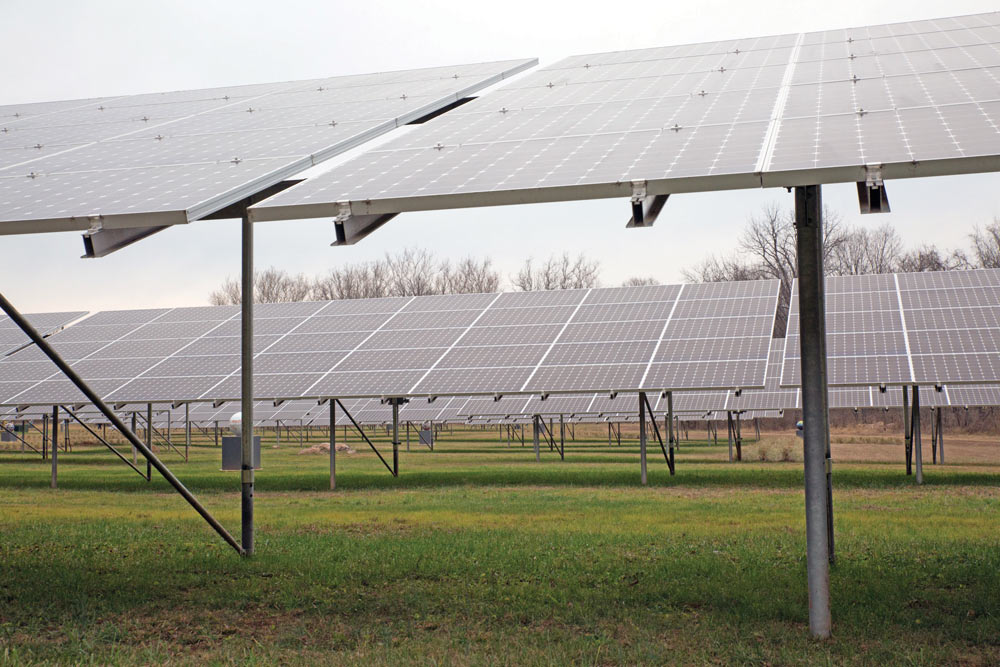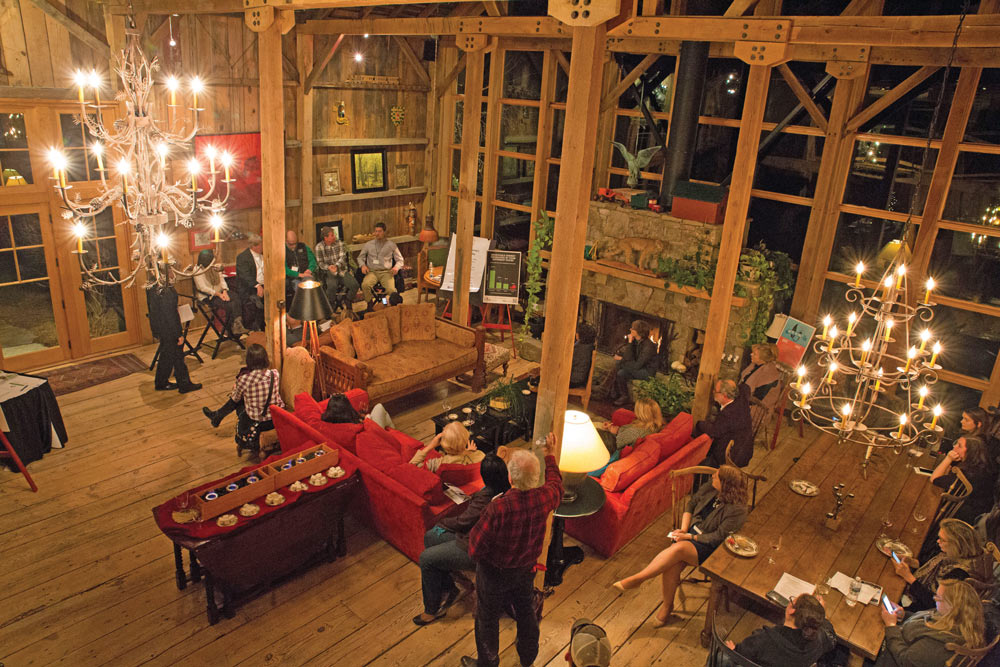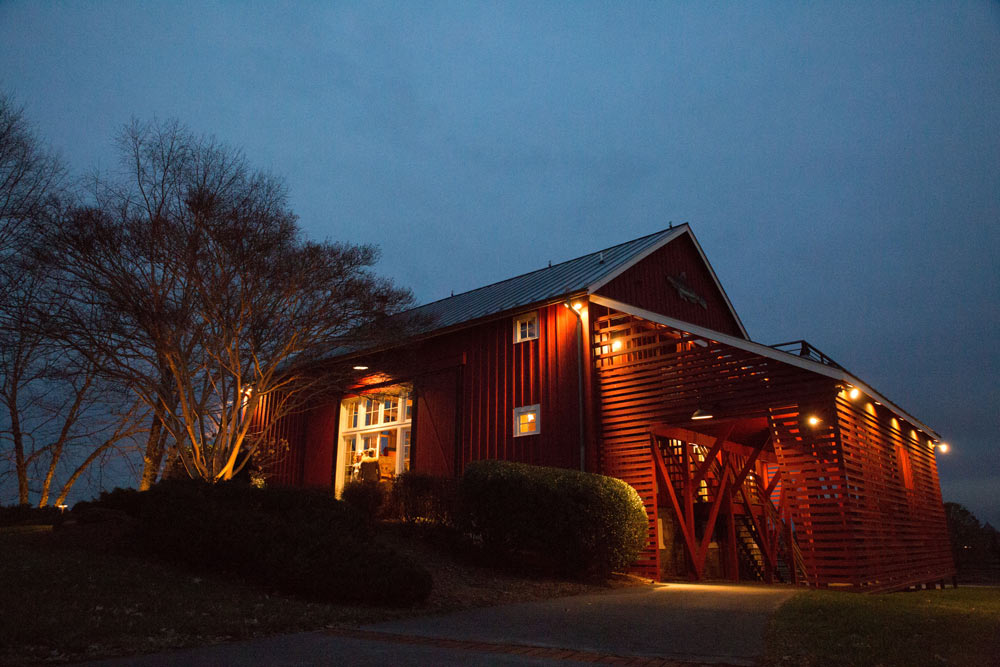Farming the Sun

Story and photos by Callie Broaddus
There is a new crop in town, and it’s weather resilient, doesn’t require feeding or cutting, and offers a guaranteed yield: the sun. Thanks to the dedicated efforts of one Loudon County resident and others on a Virginia legislative subcommittee, members of the agriculture economy across Virginia may be able to farm the sun to add stability to an otherwise volatile business.
Karen Schaufeld is not a farmer by trade. She obtained her juris doctor degree from George Washington University, served as general counsel for N.E.W. Customer Services Companies Inc. (which she helped found), started local organization 100 Women Strong and co-founded the kindergarten readiness program All Ages Read Together.
But when she wanted to put a five-acre parcel of her Leesburg farm to use, Schaufeld immediately discovered that the land wasn’t ideal for any conventional form of agriculture. Noticing that it was, at least, sunny, she sought to install solar panels on the parcel instead and quickly learned that Virginia law cast a dark shadow over the economic viability of her investment.
“You should be able to grow solar on your farm. That’s part of having self-determination … but you can’t sell your excess, and that’s the problem. And that’s what we’re trying to fix.” — Karen Schaufeld
In a letter to the editor in the Loudon Times-Mirror in November 2015, Schaufeld said, “I never set out to be a crusader. I simply believed that I could offset some part of my electricity use for my house. I also believed that as an owner of private property, I could use my land according to my own wishes, barring any material detriment to my neighbors. Turns out, this was not so easy.”
According to Schaufeld, laws in Virginia at that time only allowed private individuals to offset their electrical use if solar panels were directly attached to a building, which meant that Schaufeld’s small 8.6 kilowatt (kW) solar array was only earning her about 4 cents per kilowatt-hour of energy produced, even though she was paying 11 cents per kilowatt-hour to purchase electricity from Dominion Virginia Power. When she learned that it was not mechanically necessary for panels to be attached to a building in order to power it, Schaufeld set out to change the rules.
Through the support of state legislators former Sen. Mark Herring (D) and Del. Randy Minchew (R), Virginia passed a bipartisan bill in 2013 (HB 1695) to begin to rectify the illogical and stifling nature of Virginia’s solar laws. The law introduced “agricultural net metering,” which enables farmers to install solar arrays separate from buildings and apply the energy credit from their array to multiple meters on their farm. A new law, proposed for consideration in the 2017 General Assembly, would expand agricultural net metering to allow for larger solar arrays and for farmers to earn the market rate for excess energy sold back to a utility.
Alongside the proposed agricultural net metering legislation, solar panels in Virginia have become drastically cheaper to produce and install. Nick Messer of Prospect Solar LLC explained some of the improvements while standing in front of Schaufeld’s newly expanded 465 kW solar array.
“Tax credits are huge; that’s 30 percent off the cost of the system. We’ve seen advanced installation techniques, so our guys get more experienced. They install faster, and that lowers cost to clients. Better equipment makes installation easier — less troubleshooting, and that cost is a reduction for the client as well.
“Working with different entities in the community, when inspectors and electricians are more familiar with it, there is less pushback and red tape. So just as the technology is merging, it’s becoming more commonplace.”

“People believe in solar for a lot of reasons. I won’t go into the climate change or environmental part, because that’s not really where we’re coming from,” explained Schaufeld.
“It’s more that it now makes economic sense to do it. If you’re looking at an energy mix, and how you want the state to be fueled, you don’t want to be purchasing power from other states — which is what we do,” Schaufeld continued, noting that fossil fuels generally fluctuate in price.
“When I spent the capital cost to put this in, it’s the same cost for its entire 20-25 years of its useful life. So if I’m planning ahead, economically, I’m going to want to have something like this and know exactly how much it’s going to cost for the next 20-25 years, not worry whether natural gas is going to go up.”

their facilities use.
“You should be able to grow solar on your farm. That’s part of having self-determination … but you can’t sell your excess, and that’s the problem,” said Schaufeld. “And that’s what we’re trying to fix.” ML


